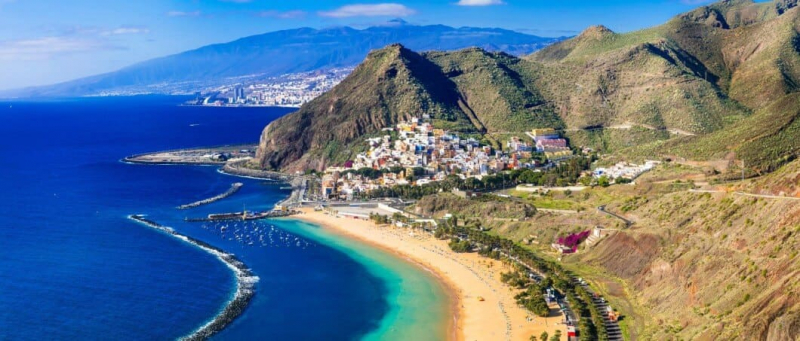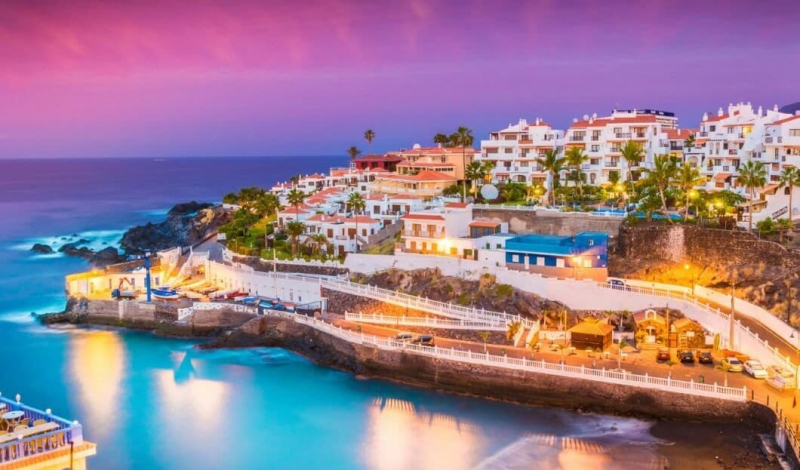The Canary Islands, known for sun-drenched beaches and striking volcanic landscapes, have long attracted the sun-seeking Europeans. However, beneath this idyllic surface, a housing shortage is emerging, leading the regional government to curb the holiday rental surge that has fueled it. New regulations, approved following heated parliamentary debates, impose a five-year freeze on new holiday rentals, creating some disruption in southern Gran Canaria’s property market. For investors counting on lucrative Airbnb ventures, it’s a stark awakening to regulatory realities.
Effective this week, the law reclassifies holiday rentals as a legitimate business, rather than informal side ventures. Platforms like Airbnb and Booking.com now face scrutiny, with new licensing suspended. Only previously registered properties are exempt, causing a rush for existing permits.
The key element of the change is the five-year moratorium on new Vacation Rental (VV) licenses. Acquiring off-plan condos in areas like Maspalomas or Playa del Inglés for short-term rentals is no longer possible. “This deals a blow to expansion strategies,” observes Elena Vargas of Canary Invest Group. “Investment funds are now sidelined, seeing their pipelines dry up.”
The impact on property values is significant. Existing licensed apartments, now scarce assets, are likely to see increased value due to high demand. However, unlicensed or newly built units, lacking tourism potential, will probably decrease in appeal. Owners may be forced to consider long-term residential leases or discounted sales. In southern Gran Canaria, where holiday rentals constitute a large percentage of some neighborhoods, non-compliant assets could face markdowns of 15-20%, according to initial market assessments.
The uncertainty extends beyond new constructions. A potential restriction on license transfers looms, potentially preventing the transfer of VV licenses upon sale or inheritance. If implemented, this could severely diminish resale values, turning investments into liabilities. “Investors relied on the exit strategy,” Vargas points out. “Without transferability, the asset loses value once you want to sell.”
Adding to the complexity, authority has been given to municipalities, allowing them to regulate rental density and location. Southern Gran Canaria’s councils must create custom plans, considering local factors such as beachfront regulations and density limits. “This creates a patchwork risk,” warns a report from the Canary Islands Real Estate Association. “One town might allow limited growth, while another restricts it entirely. Predicting returns becomes difficult.”
Click here to preview your posts with PRO themes ››

The regulations also address scale, limiting tourist housing to 10% of the total habitable space per municipality (20% on smaller islands). This threshold is already strained in Tenerife and southern Gran Canaria. “In popular areas, this is a major constraint,” argues lawmaker Maria López, who criticized the bill as “hotelier’s revenge.” A ten-year ban on converting new buildings or commercial spaces into rentals further limits the supply.
This occurs as the islands experience a tourism boom. From January to August 2025, over 10.3 million international visitors arrived, setting records and contributing €15 billion to the economy. However, this influx—projected to exceed 14 million for the year—has led to concerns among locals regarding rising rents and a lack of affordable housing. Protests in Tenerife earlier in the year were organized against “tourism saturation.” Beneath signs proclaiming “Airbnb: Evictor of Canarians,” change is afoot.
Government officials portray these measures as a safeguard for islanders. As Regional President Ángel Víctor Torres stated after the vote, “We aim to return housing to residents, not simply platforms.” The new law requires all rentals to be registered by mid-2026, with penalties reaching €300,000 for non-compliance, and favors long-term leases in areas already dense with tourists. This mirrors a broader European movement—mainland Spain has already required 60% neighbor approval for new tourist rentals since April.
However, private equity firms, and small landlords, view it as “unfriendly” terrain. Long-term strategies? Subject to shifting local ordinances. Property values? Dependent on policy shifts. “This legislation could eliminate nearly all informal holiday rentals immediately,” reads one forum comment from Tenerife, mirroring worries about a shift toward hotels—or a relocation to less regulated areas, such as Portugal.
As sun-seeking tourists make their winter bookings, the Canaries’ rental market faces uncertainty. Can the freeze calm the market without harming its allure? Or will paradise become unaffordable for many? One thing seems certain: In Gran Canaria’s vibrant southern resorts, the age of limitless Airbnb growth is coming to an end.


